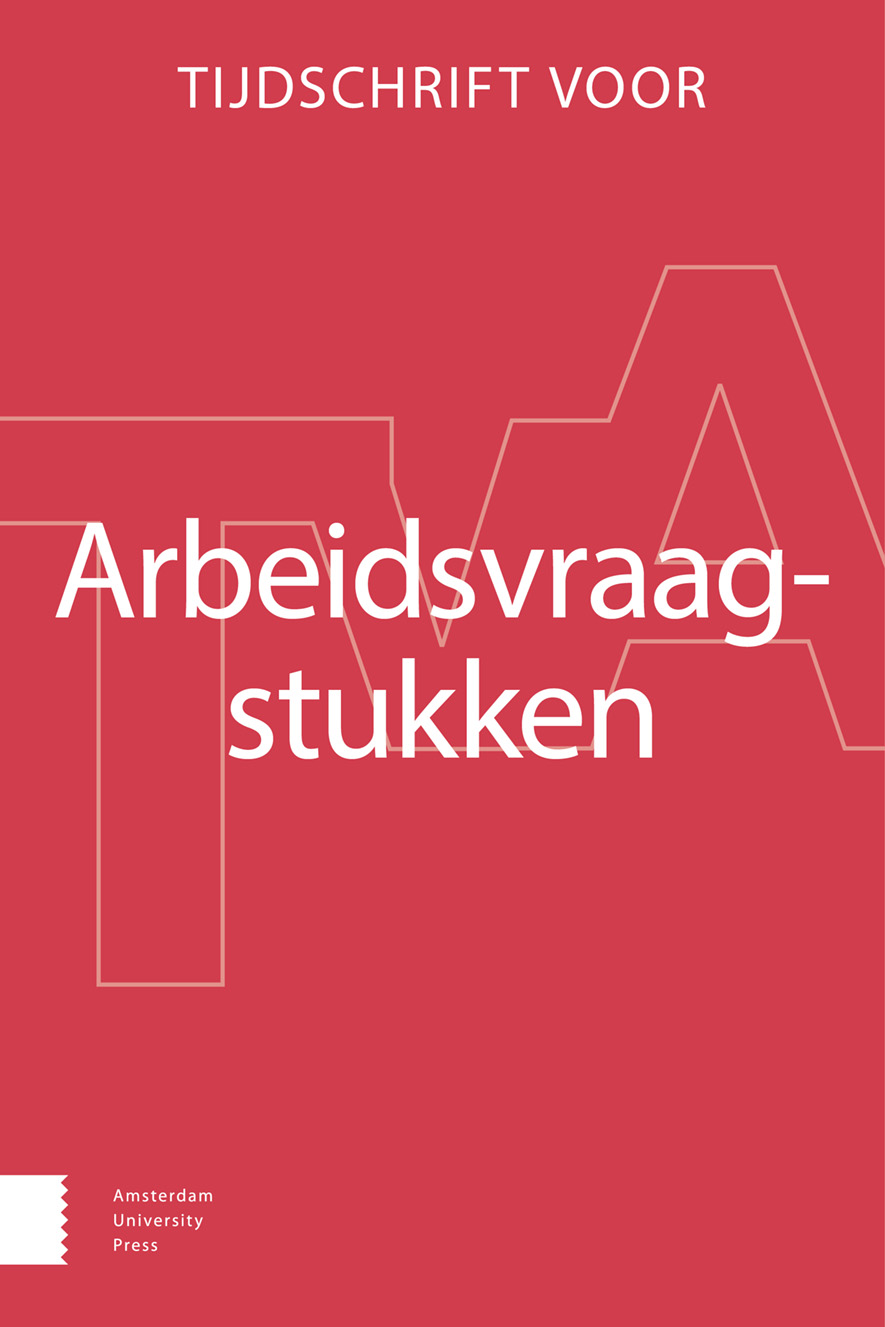-
oa Ongelijke kansen op de transitionele arbeidsmarkt
- Amsterdam University Press
- Source: Tijdschrift voor Arbeidsvraagstukken, Volume 24, Issue 2, Jun 2008,
Abstract
Unequal chances on the transitional labour market
The modern labor market has been described as a 'transitional labor market' because of the increasing number of transitions between work and non-work. According to the founding father of the concept, the German economist Günther Schmid, the Netherlands is leading in this respect. Although much of the literature on the transitional labor market is positively tuned, Schmid warns for the risks of long-term exclusion. The core question in this article is whether such risks exist for migrants in the Netherlands. The research focuses on unemployment, disability, and domestic care. The transition chances of Turks, Moroccans, Surinamese and Antillians are estimated with proportional hazard models. A decomposition method is used to explain the differences found. Migrants indeed seem to have disadvantaged transition chances, with one notable exception. Antillians have better chances than Dutch natives to leave disability. Migrants' unfavourable results can be explained from their demographic as well as human capital characteristics. In the case of unemployment or disability, Moroccans are also negatively affected by non-measured characteristics. Important for labor market policies is that labor experience seems to have a significant positive effect on the transition chances of non-workers. It is advisable to implement this finding in actual discussion on the liberalization of the rules on dismissal.


